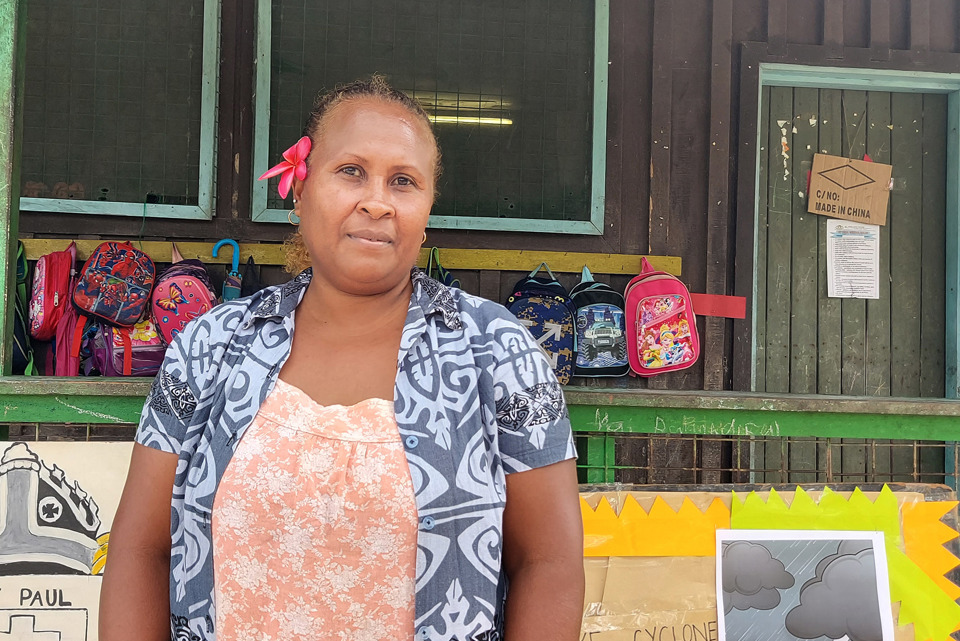Solomon Islands is one of the most disaster-prone countries in the Pacific region and in the world. In 2021, the World Risk Report put the Solomon Islands as the second most at risk country when it comes to natural disasters.
To mitigate the damage and loss caused by these crises, a new program is helping children prepare for emergencies using the power of song.
The Singing our Way to Safety program helps teachers in the Solomon Islands learn Disaster Risk Reduction skills so that they can educate their students on what to do during an emergency.
Last November, teachers from nine schools in the Malaita province participated in the training program, organised by Caritas Australia Solomon Islands (CASI). They learnt how to teach their students nursery rhymes that related to preparedness actions around tsunamis, floods, cyclones, and earthquakes. A few weeks after the program’s implementation, over 190 nursery students joined in simulation exercises in their respective schools led by the teachers who attended the training.
All participants were provided copies of the Singing our Way to Safety Workbook and other Disaster Risk Reduction materials, with the training facilitated by the Malaita Provincial Disaster Management Office (PDMO).
Students in Solomon Islands use nursery rhymes to learn how to act when a tsunami strikes.
Margaret, a teacher from a school in Malaita, joined the program to help her kindergarten students stay safe, be prepared and to respond adequately when an emergency occurs.
“Our community is affected by climate change. When it rains, we experience flooding and landslides. I have witnessed a frequency of floods, cyclone around our community, some gardens were destroyed by the heavy rain and it affects the food production in the market,” Margaret said.
“It is important to prepare for any disaster to minimise panic, threats to our school and community, and to reduce accidents. I must share what I have learned to my students and families.
“My students enjoyed the nursery rhyme songs and dances. I have included these rhymes in our school timetable.”
Solomon Islands is particularly vulnerable to the impacts of climate change and extreme weather events. Cyclones and earthquakes strike frequently, with the potential to cause severe damage and loss of life.

Margaret is a teacher in the Solomon Islands who is using nursery rhymes to help her students prepare for future disasters. Photo: Caritas Australia Solomon Islands
The nursery rhymes help students like six-year-old Lenty to memorise and learn what to do when a natural disaster occurs.
“My teacher told me to run to higher ground if there is an earthquake, tsunami or flood,” Lenty said.
“She also told me to stay away from fallen houses or trees if there is an earthquake or cyclone. Take cover under the table if an earthquake occurs.”

Lenty now knows what to do during an emergency, thanks to the Singing a Way to Safety program. Photo: Caritas Australia Solomon Islands
The training came into practice when a 7.3 magnitude earthquake struck the Solomon Islands in late November. One of the teachers who participated in the Singing our Way to Safety program told CASI that her students immediately knew what to do during the earthquake and even had a better knowledge of emergency responses than many adults in the community.
There were no casualties from the earthquake, and activities like the Singing our Way to Safety are essential in helping children across Solomon Islands to mitigate the impacts of disasters.

















